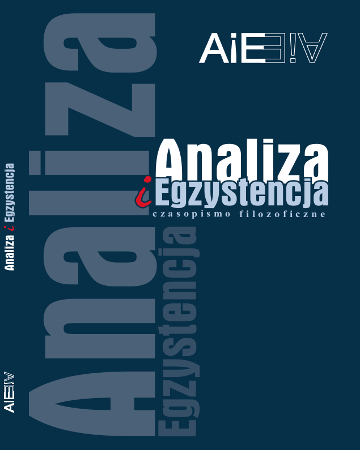Interaktywna edukacja filozoficzna: Na Targowisku Ujawnień
Interactive philosophy teaching: At the fair of disclosure
Author(s): Katarzyna Kuczyńska, Sebastian WachowiakSubject(s): Social Sciences, Education
Published by: Wydawnictwo Naukowe Uniwersytetu Szczecińskiego
Keywords: Philosophizing; the practical nature of philosophy; interactive teaching; identity exposure; constructivism; being a part of a group; cognitive dissonance; holism
Summary/Abstract: The text consists of the theoretical introduction Interactive philosophy teaching, written by Katarzyna Kuczyńska, followed by a presentation (with a commentary) of the philosophical workshop script At the Fair of Disclosures, created by Sebastian Wachowiak.The theoretical part refers to the idea of philosophy as a form of human activity that stays in a strict correlation with everyday life. Using the idea as a referential point, the author distinguishes the following issues: (a) the process of philosophical thinking, (b) the results of this process – philosophical knowledge, (c) the knowledge of philosophy, as well as intellectual competence, crucial for developing one’s philosophical culture. She also provides an interactive model of teaching philosophy at school as the one she considers the most favorable. According to the given point of view, interactive philosophy teaching: (a) points out the correlation of philosophical questions with existential experience of the individuals; (b) creates environment for active philosophising for the students (the didactic situation aims at initiating the knowledge manufacturing process rather than simply reproducing the knowledge). Sebastian Wachowiak’s script At the Fair of Disclosures is an example of creating educational situation within the interactive model of philosophy teaching. The goal of the lesson is to deepen the students’ understanding of identity as a category described through its public and social as well as intimate and private dimension (to show the multidimensionality of human life in public and social space); to recognize the moral threats resulting from the identity exposure. During the first part of the lesson, while the students are participating in the designed didactic game, the issue selected in accordance to the above criteria becomes the object of students’ experience. The second part of the lesson is a discussion which aims at stimulating the students intellectually and engaging them in active philosophising. The script closes with the author’s commentary, in which he refers to the experience gained during the realisation of the presented didactic idea on the one hand, and on the other explicates the interactive nature of the designed didactic situation.
Journal: Analiza i Egzystencja: czasopismo filozoficzne
- Issue Year: 2014
- Issue No: 25
- Page Range: 159-173
- Page Count: 15
- Language: Polish

